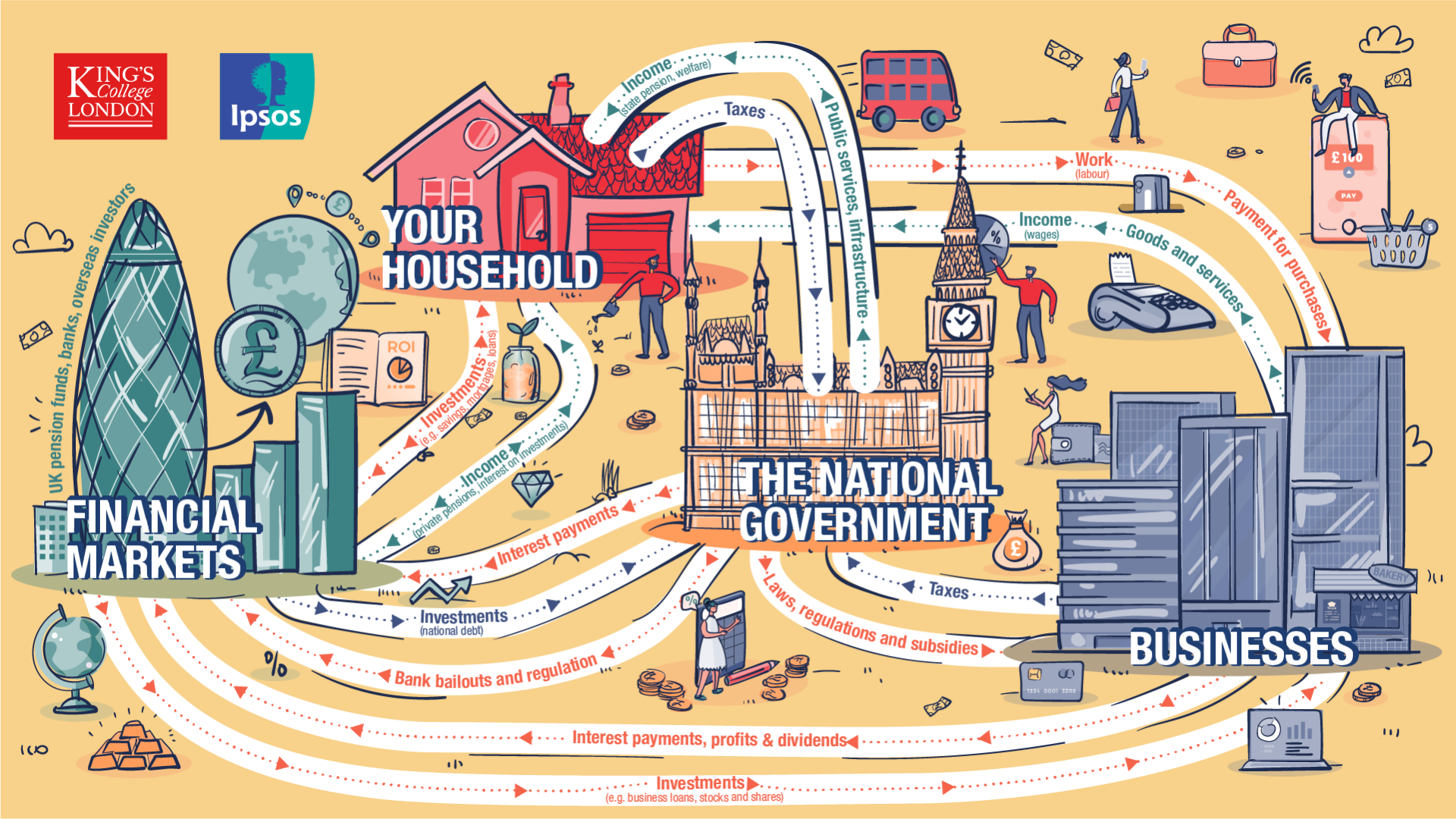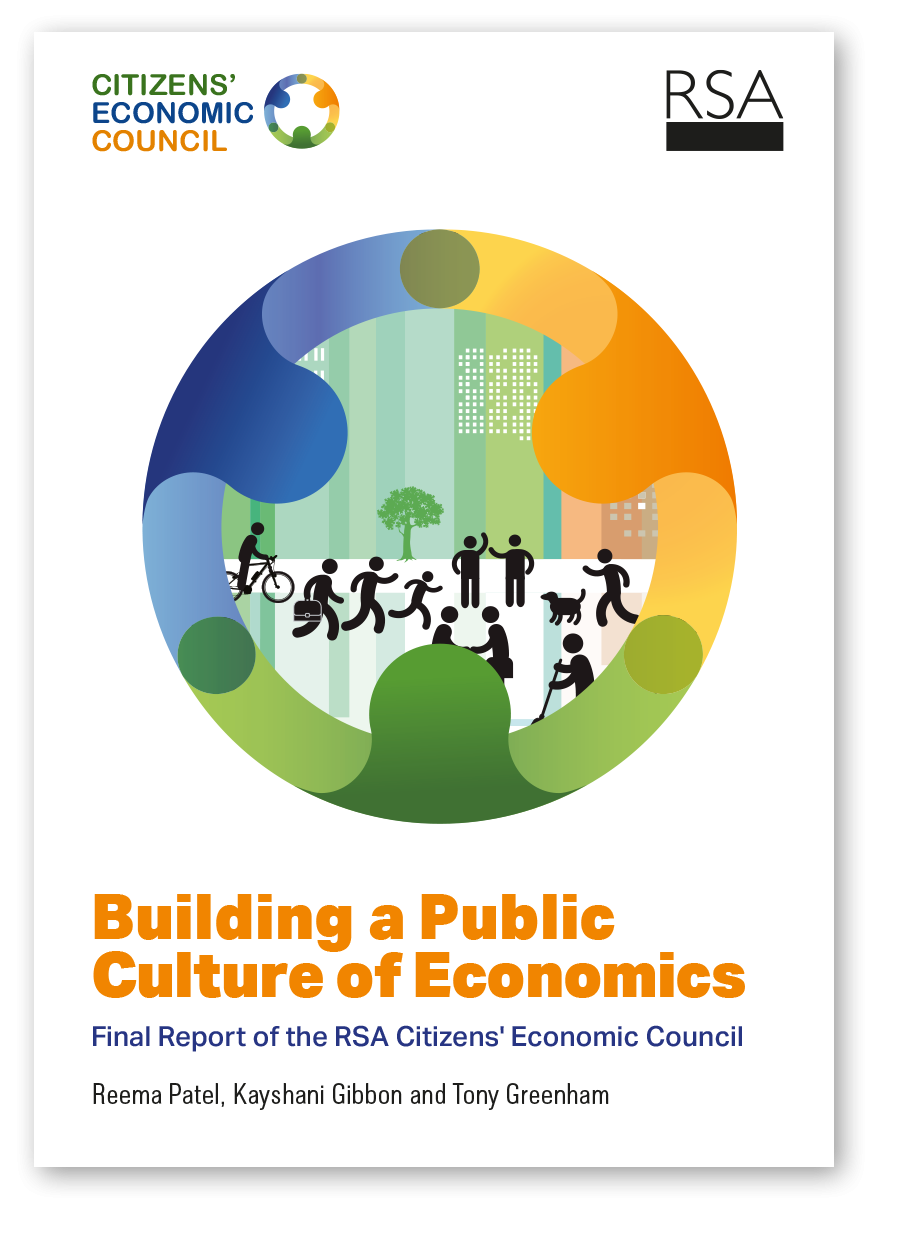How would you visualise the economy?
The following diagram was used during sessions to help citizens visualise the economy and make connections that sometimes remain invisible in the day-to-day.

Padlet
This padlet contains a list of definitions and explanations for things we discussed during the CEC workshops, as well as answers to questions citizens raised but which we didn’t have time to address. We hope you find it useful!
Introduction
What is the cost-of-living crisis?
The 'cost-of-living crisis' refers to a significant drop in people's disposable income (the money people have left to spend after taxes and benefits). But what’s caused this crisis? How is it affected by policy? And what is inflation? To find the answers, you can read the explainers below.
Read short explainer Read in-depth explainerHistorical context
To give some more background to the current cost-of-living crisis, these video outlines Britain’s economic struggles over the last 10-15 years.
Economics 101
Economics can be a daunting topic and might seem like it is the exclusive domain of experts. However, the point of this project was to demystify economics and to show that, given time and information, every citizen can key economic issues and participate in the debate. To help, we have put together some accessible tools you can use to teach yourself the basics of economics.
Finally, you can explore these topics in more depth and at your own pace at the following websites.
Economics Help Positive MoneyWhat is deliberative democracy?
This project aimed to allow citizens to deliberate on issues of economic policy in order to gain a greater understanding and hopefully have an impact on economic policy. It is part of a burgeoning wave of Deliberative Democracy, with many similar processes already having been tried out across the world. But what exactly is Deliberative Democracy, and how does it differ from our more familiar model of Representative Democracy? We’ve put together a number of short explainers to help answer these questions.
What is Deliberative Democracy?Examples of deliberative democracy in practice
As mentioned, deliberative processes have been around for a while. Here are a few examples of successful deliberative processes:
Citizens Assembly on Brexit
Citizens came together to engage in detailed, reflective and informed discussions about what the UK's post-Brexit relations with the European Union should be, focusing on trade and immigration. Members got to hear from and question a wide range of experts and deliberate in depth, as well as produce a set of recommendations. You can read the summary report below.
Citizens’ Assembly of Scotland
This is another great example of a deliberative processes. The Scottish Government has committed to implementing the Assembly's recommendations and has also pledged to carry out more deliberative processes going forward, hopefully making deliberative processes a permanent fixture in the Scottish political landscape.
Irish Climate Citizens’ Assembly
This assembly's recommendations were eventually adopted by an Irish parliamentary committee in a landmark Climate Action Plan published in 2019. More details can be found by clicking the button below.
2017 Citizens' Economic Council
The 2017 CEC was organised by the RSA with the intention of sparking a public discussion about the goals and priorities of economic policy. You can find details in the report below.

You can watch short videos on the different processes below:
Simulators and online tools
Finally, if you’re feeling adventurous, the online tools below can provide you with statistics covering a range of topics, or even help you visualise the prospective impact of different policy changes in real time.
PolicyEngine allows you to simulate the effects different policy changes might have on things such as poverty, income inequality and the government budget.
PolicyEngineThe Wealth Tax Commission's tax simulator helps you see what effect different tax policies would have on tax revenue, as well as what effect it would have on your own tax liability.
Tax SimulatorThe Economic Observatory's Data Hub provides information on a broad range of metrics, from changes in average house prices over time by region, CO2 emissions by sector, employment figures and interest rates, to health, infrastructure, and much more.
DataHub
